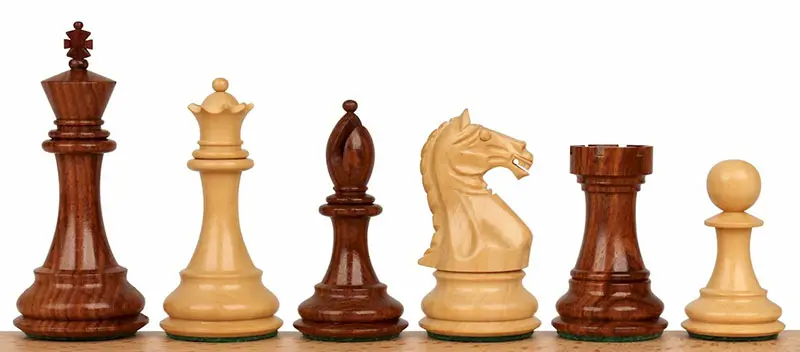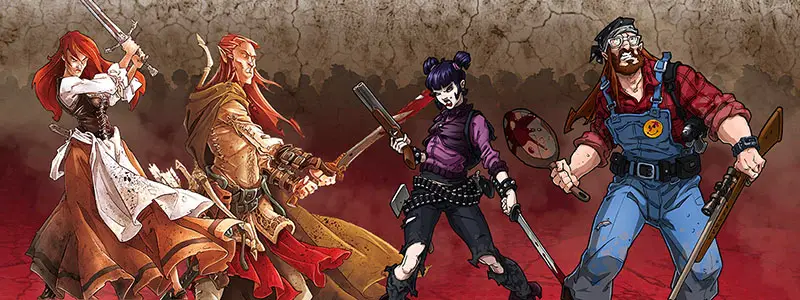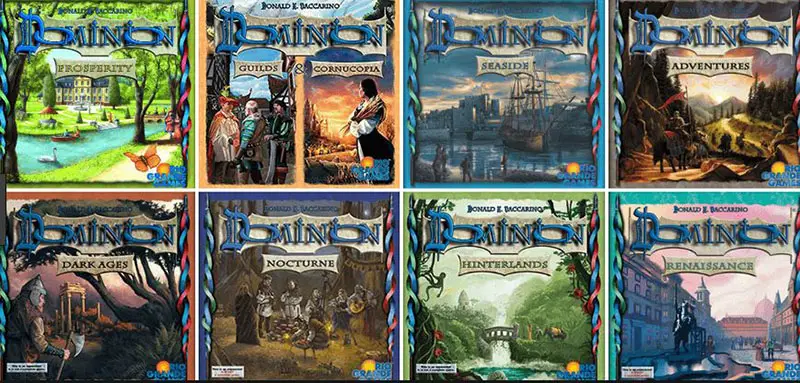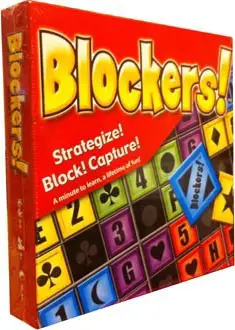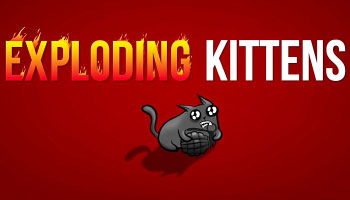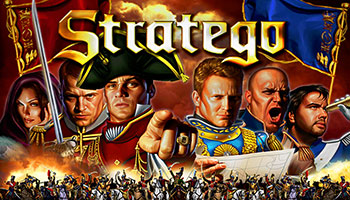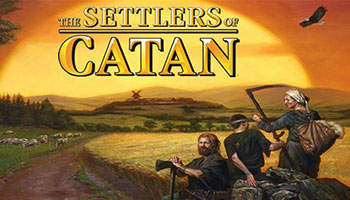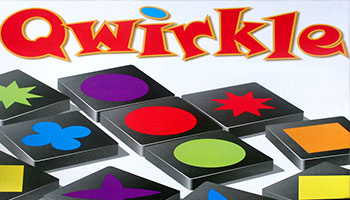
Your Player Board represents the small piece of land you own.
- Good Storage Area: Store Goods until you spend them.
- Workers Lot: Store unemployed Workers (meeples) you've received from completed Settlers cards.
- Die slot: Return an Apprentice (meeple) from the main board to your Workers Lot.
- Construction Platform: Store Houses you've purchased from the Construction Yard.
- House Lot: Place Houses on these lots as part of the requirement to fulfill a Settlers card. Each lot can hold 1 House and fulfill one Settlers card. You can build a maximum of 7 Houses.
- Community Building Lot: Place purchased Community Buildings on these lots.
- Reputation track: Keep track of your reputation.
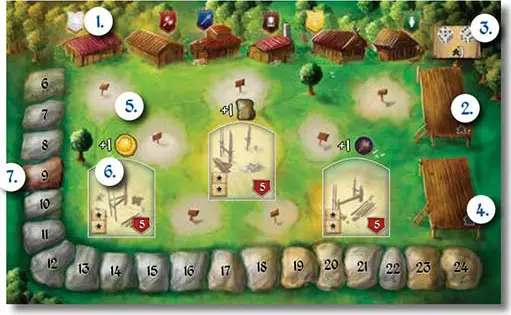
Reputation
It's important to keep up your good name in the City and maintain good relations with High Queen Tabita. Your reputation is tracked on the Reputation track on your Player Board. All players start with a reputation of 9. …





